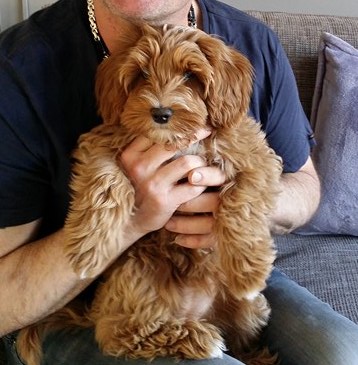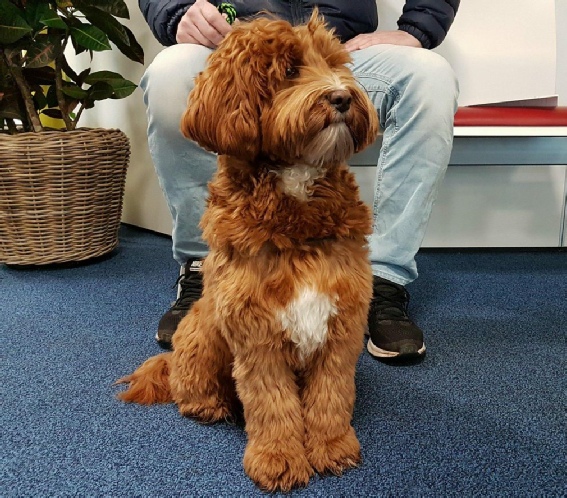Support Dog

My husband has PTSD. He is provoked every night by violent re-experiences (nightmares in which you experience everything as the moment he experienced it, including the pain and fear that came with it). Bathed in sweat,
he wakes up several times a night. Also during the day he can suddenly end up in a re-experience (dissociate) and lose hours of time. I don't need to explain how annoying it is if you don't know what you've been doing
for the past few hours. But it is confusing to say the least. He can also be very startled if someone suddenly stands right behind him or comes too close.
No solution after 10 years of therapy.
My husband is a big strong man that nobody cares about. But due to the many dissociations, he is unable to work or make agreements because he never knows for sure whether he can keep them. After 10 years of therapy,
these points in particular remained a major problem. Because we were not eligible for an assistance dog, we took a normal dog in the hope that it would give some relief. This did help somewhat, but the aforementioned
problems did not go away much.
A service dog is born
We were intensely happy with the message De Hond Kan De Was Doen Foundation that they wanted to help us with the financial part for the training. Our dog had just given birth to eight healthy puppies, one of which was
to become my husband's service dog. For the first time in a long time we had hope that it could be a little less heavy.
Safe zone
We have been training intensively at Bultersmekke Assistancedogs for a year now, and Pebbles has already made our lives so much better. Despite her puberty, our Pebbles is trying very hard. As soon as my husband
walks out with her and someone stops at his place, she sits neatly between my husband and that person. With this she creates a safe zone for him, which he experiences as very pleasant.
Early warning
She also senses well, because of the bond that has been built up, when he is going to dissociate. She then becomes restless or starts asking for his attention. This is also easy for me because then I can see early
on when he starts to feel different. He hasn't been out for hours in a few months without knowing where he was.
Less medication thanks to Pebbles
At night she sleeps upstairs in a basket next to his bed. She notices better and better when he has nightmares. Her reaction to this can be refined a bit, because it is something different than we had imagined. She
then jumps on top of him or she lies above his head like a kind of hair band and then licks his shaved head. This has enabled him to reduce his sleeping medication by two-thirds and he no longer wakes up drenched in
sweat. So her particular response is effective. Both Pebbles and we still have a lot to learn, but we are so happy and grateful for what we have already achieved.

 Our Dogs
Our Dogs
 Female
Female
 Male
Male
 Puppies
Puppies

 Dutch
Dutch


 Studio DeGoede © - Febr 2021 v2.0.0
Studio DeGoede © - Febr 2021 v2.0.0